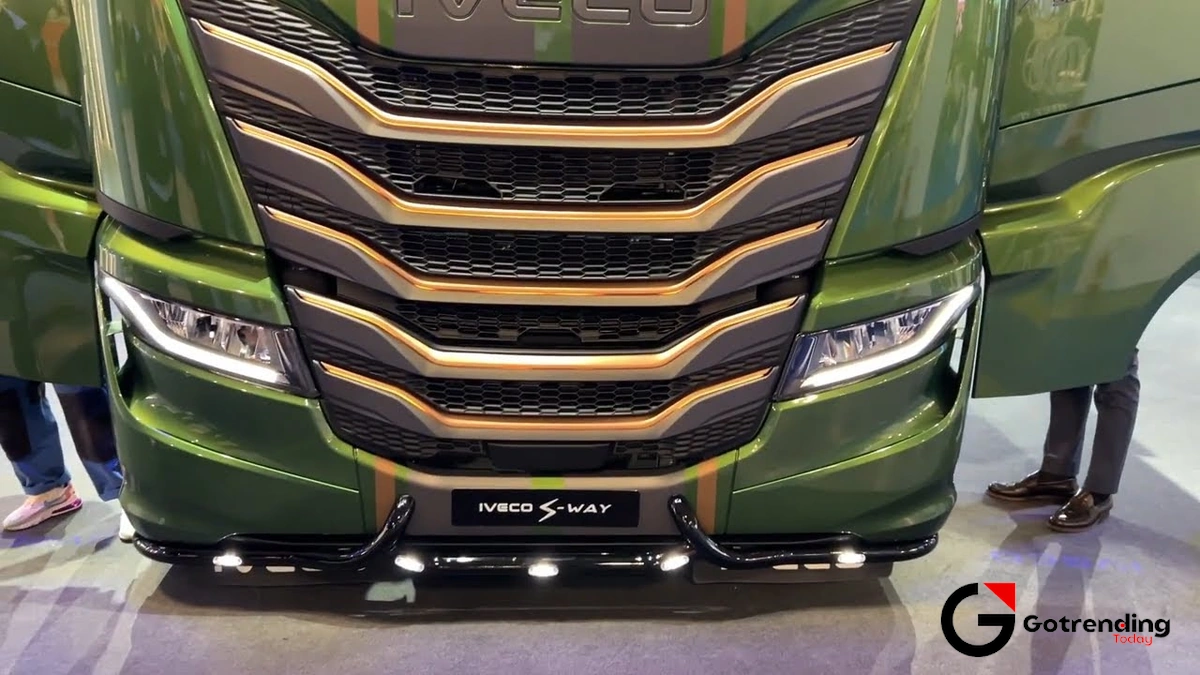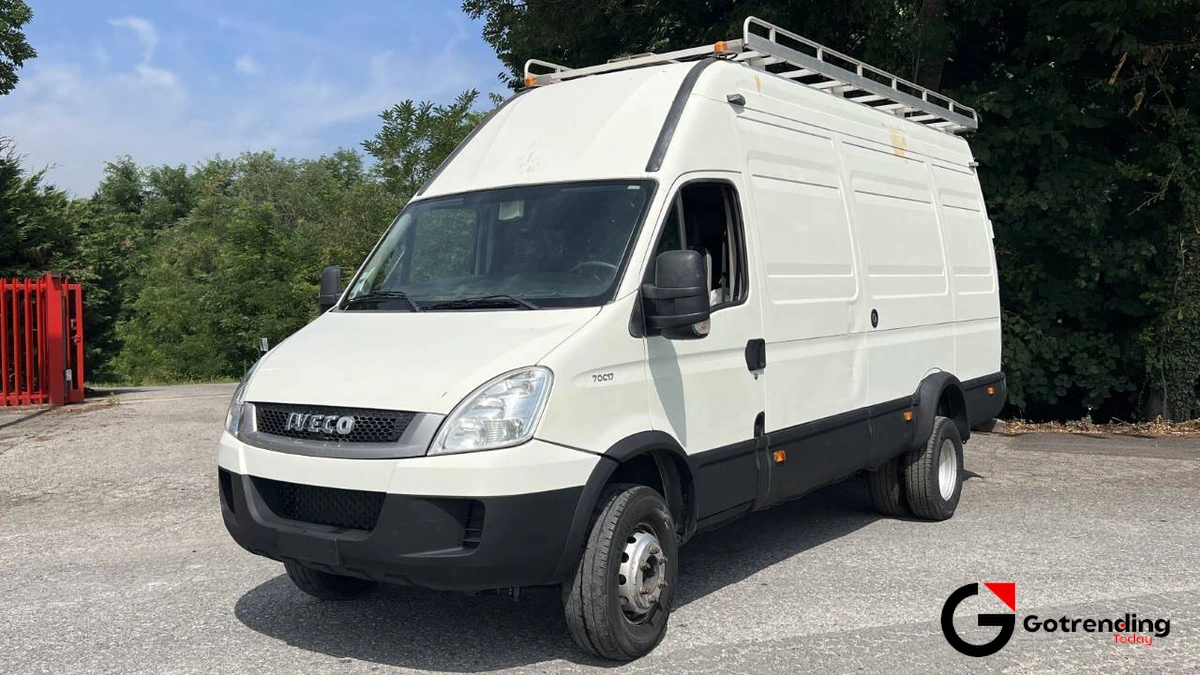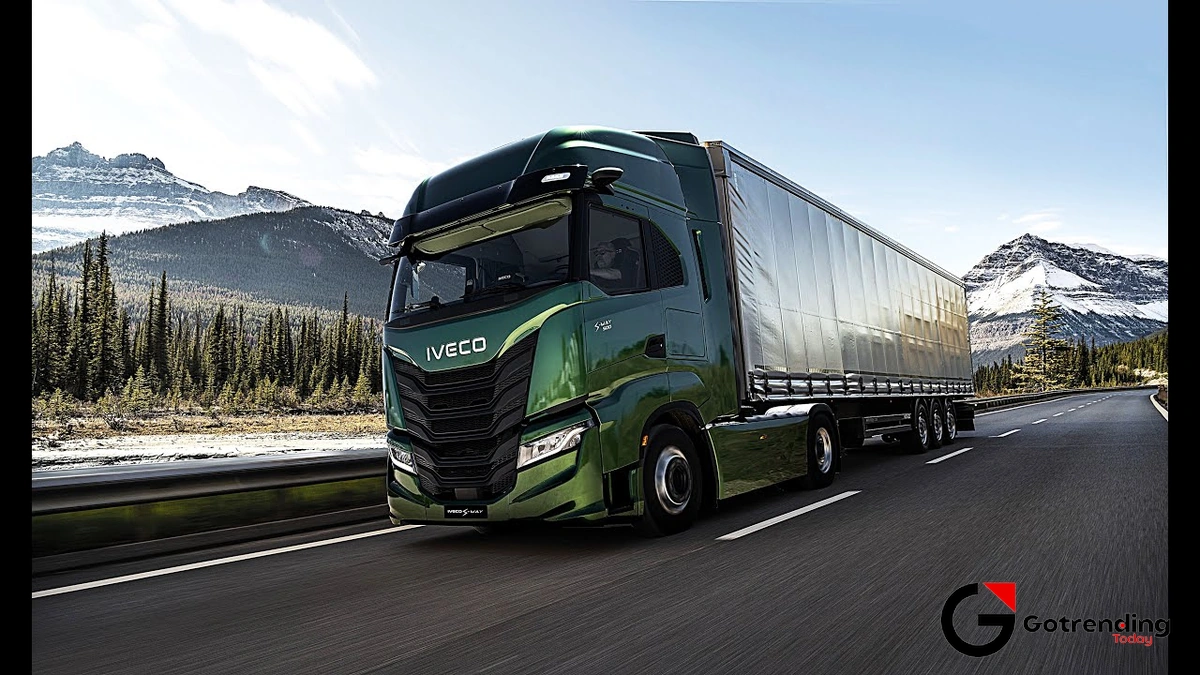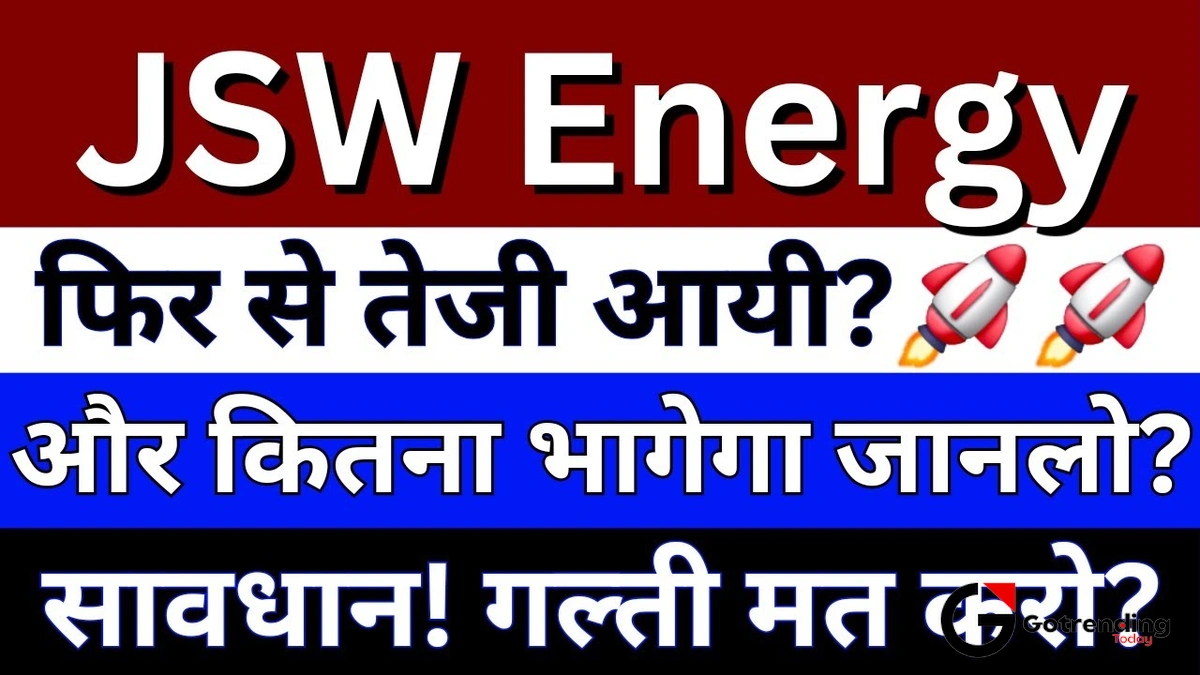The Ghost on the Highway | Why You Don’t See Iveco Trucks in India
Pull over at any roadside dhaba, anywhere from Kanyakumari to Kashmir, and just watch the highway for ten minutes. What do you see? A river of steel. And most of that river flows with a single name emblazoned on the grille: Tata. It’s a constant, a given, a fundamental truth of the Indian road. But it always gets me thinking. Where are the others? Not the ones we have, like BharatBenz or Volvo, but the other global giants. Specifically, where on earth is Iveco ?
It’s a strange one, isn’t it? Iveco is a titan in Europe, South America, and beyond. They make everything from the tough little Daily van to massive, continent-crossing Stralis prime movers. They’ve won the Dakar Rally, for crying out loud. These are not small-time players. And yet, in the world’s fastest-growing major economy, a place obsessed with logistics and transport… they are practically a ghost.
But ghosts often have a story. And Iveco’s Indian story is a fascinating, slightly frustrating tale of a past life that still echoes on our highways, even if you don’t recognise it.
A Partnership You Might Just Remember

Here’s the thing. Iveco was here. Sort of. For a while, anyway.
If you’re of a certain age, you’ll remember the late 90s and early 2000s. It was a time of transition for Indian trucking. And for a glorious period, there was a joint venture called Ashok Leyland Iveco . Their flagship product? The ‘Cargo’ range of trucks. You’ve definitely seen them, even if the name doesn’t ring a bell. They had this distinctive, very European-looking cab a bit rounded, very different from the classic, angular Tata and Leyland designs of the era. For more context on business ventures, a look at the Aditya Infotech IPO hype can offer some interesting parallels.
For a moment, it felt like the future. These trucks brought a new level of driver comfort and design to the mainstream Indian market. They were a common sight. The partnership eventually dissolved in 2007, with Ashok Leyland buying out Iveco’s stake. Ashok Leyland continued to build trucks on the Cargo platform (the ‘Ecomet’ and its successors still carry that DNA), but the Iveco name vanished from the mainstream consciousness.
So, the ghost on the highway isn’t just a metaphor. It’s a real, tangible thing the lingering design language of a partnership that could have changed everything but, ultimately, didn’t.
The Unbreachable Fortress | Competing with Tata Motors

So why did they leave? And more importantly, why haven’t they come back? The answer, in two words, is Tata Motors . But it’s not just a simple case of competition. To understand why there are virtually no Iveco trucks in India today is to understand the very fabric of the Indian transport industry.
Competing with Tata in the commercial vehicle space isn’t like competing in the car market. It’s a different universe. Tata’s dominance is built on a foundation that a foreign company would find almost impossible to replicate. Think about it this way:
- The Network: You can break down a Tata truck in the most remote, godforsaken corner of the country, and the nearest mechanic, probably a guy named Raju working out of a shed with a handful of spanners, will know how to get it running again. That level of grassroots service network and parts availability is something you build over decades, not years.
- The ‘Jugaad’ Factor: Indian transport operators are masters of adaptation. They overload their trucks, they run them on terrible roads, and they need machines that can take a beating and be fixed with a hammer and a bit of ingenuity. Tata trucks are designed, implicitly, for this reality. European trucks, like those from Iveco, are sophisticated, high-tech machines built for a world of pristine motorways and strict regulations. They’re fantastic, but perhaps a bit too delicate and expensive to fix for the rough-and-tumble of the average Indian transport route.
- Price. Price. Price. The Indian truck market is brutally price-sensitive. Tata has achieved a mastery of cost-effective manufacturing that is staggering. A new player like Iveco would have to either import their trucks (making them prohibitively expensive due to taxes) or invest billions in a local manufacturing plant, a huge gamble in a market already dominated by established players. The economic details of such ventures are often covered by publications like The Economic Times .
It’s not that Iveco isn’t tough. It’s that Tata is ‘Indian-tough,’ a completely different metric.
The Quiet Backdoor | CNH Industrial India
But wait, the story gets more complex. I initially thought Iveco’s parent company had just ignored India entirely. That’s not quite right. Actually, it shows how strategic these global giants are.
Iveco is part of CNH Industrial India (which, in turn, is controlled by the Agnelli family’s Exor). And while they may not be selling Iveco trucks here, CNH is a massive player in another, equally vital Indian sector: agriculture. You’ve heard of New Holland tractors, right? That’s them. They are a market leader in tractors and farm equipment.
So, it’s not an absence; it’s a choice. CNH looked at the Indian market and decided to place its bets on the farm, not the highway. They saw a clearer path to profitability and market leadership with their agricultural brands than they did trying to take on the Herculean task of challenging Tata and Ashok Leyland in the world of commercial vehicles in India . It’s a pragmatic, if slightly unexciting, business decision. It reminds me of the kind of careful analysis seen in discussions about the Titan share price .
I keep coming back to this point because it’s crucial. The absence of the Iveco India brand isn’t a failure, but a calculated strategic pivot. They are here, just wearing a different hat.
And still, every time I see an old, faded Cargo truck rattling down the road, a part of me wonders what could have been. What if the partnership had held? What if they had decided to go all-in? Our highways would certainly look, and sound, very different today.
FAQs | The Iveco India Conundrum
So, can I actually buy an Iveco truck in India today?
For all practical purposes, no. You can’t walk into a showroom and buy a new Iveco truck for commercial hauling on Indian roads. The company does have a presence through its parent, CNH Industrial, and sometimes showcases specialty vehicles (like for defence or firefighting) at expos, but there is no mainstream sales and service network for their commercial trucks.
What happened to the old Ashok Leyland Iveco trucks?
They are still around! The joint venture ended in 2007, and Ashok Leyland bought out Iveco’s share. The “Cargo” platform was so successful that Ashok Leyland continued to develop it. Many of their modern trucks, like the Ecomet series, can trace their design DNA directly back to that original Iveco-designed cab. So, the ghost of Iveco lives on in its spiritual successors.
Why is Tata Motors so dominant in the Indian truck market?
It’s a combination of a massive, deeply-entrenched service network that reaches every corner of the country, an unparalleled understanding of local conditions, and an ability to produce robust, easily repairable trucks at an extremely competitive price point. They’ve been doing it for over 75 years, creating a legacy that’s incredibly difficult for any newcomer to challenge.
Isn’t Iveco part of Fiat? I see Fiat cars here.
This is a common and understandable point of confusion! They used to be part of the same group. For many years, Iveco was under the Fiat Industrial umbrella. However, following a series of major corporate restructurings, they are now separate entities. Iveco is part of CNH Industrial, which is independent of Stellantis (the company that now owns the Fiat car brand). So, the presence of one doesn’t mean anything for the other anymore.
Could Iveco succeed in India if they tried again?
That’s the million-dollar question. A full-frontal assault on the mass market against Tata Motors would be incredibly difficult. However, there might be a path. They could potentially focus on a premium, niche segment, like long-haul specialty applications or high-end motorhomes and caravan platforms (a tiny but growing market). It would require a massive investment and a very, very patient strategy. But never say never.













